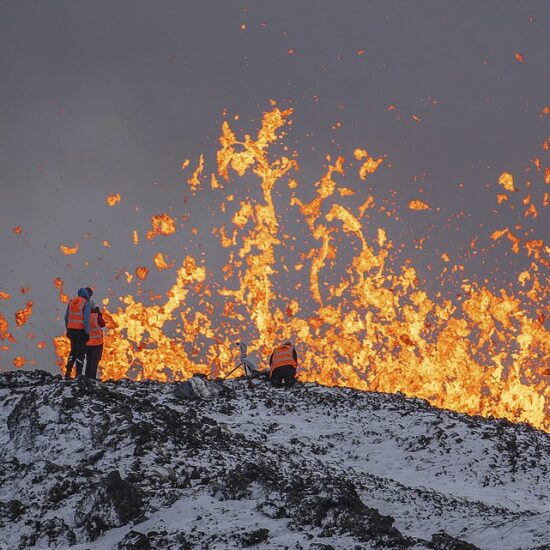
More than two years after his 19-year-old son died suddenly from meningitis B, Norrie Matthews is urging parents to get their children vaccinated against the disease before the start of the school year.
Meningitis B, the most common and deadly strain of meningitis, is rare but can lead to severe and life-threatening complications when contracted.
That’s what happened to Kai Matthews the year he was studying kinesiology at Acadia University in Nova Scotia.
“We lost our son, Kai Matthews, in June of 2021 to meningitis B,” Matthews told Global News. “And after we lost Kai, we were completely blindsided by the fact that we thought we had vaccinated him when he was in Grade 7 for meningitis.”
While anyone can get meningitis, younger people and students are often more susceptible due to their communal living arrangements, such as residing on campus, as well as sharing personal items like utensils, drinks and cigarettes.
The bacteria causing meningitis are transmitted from person to person through droplets of respiratory or throat secretions from carriers, according to the World Health Organization.
“Close and prolonged contact – such as kissing, sneezing or coughing on someone, or living in close quarters with an infected person, facilitates the spread of the disease,” it says.
Kai Matthews (far right) was studying kinesiology at Acadia University before contracting meningitis B in May 2021.
Norrie Matthews
Kai received the meningococcal quadrivalent vaccine (which covers groups A, C, Y and W) for meningitis. However, this routine vaccination doesn’t provide protection against meningitis B. To safeguard against that strain, another vaccine is required, which costs money and requires a request to one’s family physician, Matthews said.
After Kai’s death, his family decided to launch a non-profit organization called BforKai.com to help educate people about meningitis B and increase vaccination rates. The organization also engages with provincial governments, advocating for a modification of vaccine policies to include meningitis B as a standard part of school children’s routine immunizations.
The group has been successful.
In April 2023, Nova Scotia and Prince Edward Island announced they would provide meningitis B immunization to eligible post-secondary students living in residence.
No other province offers this for students, but Matthews hopes this will soon change.
Meningitis is an inflammation of the meninges, the lining around the brain, explained Dr. Caroline Quach-Thanh, a pediatric infectious diseases specialist at Montreal’s Sainte-Justine Children’s Hospital. This inflammation is typically caused by infection, most commonly viral or bacterial.
There are also different letters for different types of meningococcal: A, B, C, Y and W.
In Canada, there are around 100 to 400 cases of meningitis reported every year, according to the Meningitis Foundation Canada, with the disease leading to fatalities in 10 per cent of all affected individuals.
Infants and young adults are particularly susceptible to meningitis, because of underdeveloped immune systems and close contact at daycare or schools, Quach-Thanh said.
“Some people have it in their throat and they’re never sick with it,” she said, adding that this person is usually called the healthy carrier.
“Other people are going to catch it by droplets and will get sick with it. So whenever you exchange saliva, either in daycare or in a bar or in school, you might then give it to somebody who doesn’t have any protection and then that person would get sick quickly.”

Since 1993, most cases of infection in Canada can be attributed to the B and C strains, according to Health Canada. But, in recent years, the incidence of group C has declined significantly, due to the introduction of the meningococcal C conjugate vaccine into routine immunization programs.
However, the vaccine for meningitis B is not part of routine vaccine programs, resulting in continuous outbreaks, with college campuses being the most prevalent sites.
“When you go away from home and you attend university and in a dorm, your behaviours tend to change,” Quach-Thanh said. “You’re now able to go in bars, you can exchange cigarettes, drinks, utensils. That’s where you meet your boyfriend or girlfriend. And that’s normal life, but that’s also how this bug is transmitted best.”
The bacteria are transmitted through droplet transmissions, which can occur when an infected person coughs, sneezes, talks or engages in close contact with others, allowing tiny respiratory droplets containing the bacteria to be released into the air and potentially inhaled by individuals nearby.
Once a person contracts the bacteria, Quach-Thanh warned, it evolves very rapidly and may lead to amputations or death in otherwise healthy children or young adults.
Meningitis B is also most prevalent in the fall and winter.
“The reason for that is because if it’s sitting happily in your throat, and then you get a respiratory virus of any kind where you have a sore throat, you’re coughing, you have a runny nose, then it’s easier for the bacteria to get through your system and then just invades your bloodstream,” she explained.

Dr. Ronald Gold, senior medical adviser of the Meningitis Research Foundation of Canada, said the symptoms of meningitis B can mimic the flu or even COVID-19.
They include fever, headache, neck pain, body aches, sensitivity to light and vomiting.
However, what’s unique about meningitis is that a person can develop a skin rash, no matter the strain.
“So if you see somebody with the fever and aches and pains and you also see little red spots, that is really a clue that they may have this bacteria, but it doesn’t occur in everyone,” Gold said.
“Once it gets in the blood, it may just take off and multiply very rapidly and essentially overwhelm you. So you can go from being perfectly healthy to being at death’s door within less than a day with this bacteria.”
‘He lost his life within 30 hours’
There have been multiple outbreaks of meningitis B on campuses in Canada in recent years.
In December 2022, an outbreak of meningitis B was declared at Dalhousie University, after one student landed in hospital and another died of the infection.
And in June 2021, Kai died less than two days after contracting the bacteria.
“He lost his life within 30 hours of contracting the first signs of a fever, which is, for a parent, impossible to wrap your head around … that a healthy, vibrant 19-year-old who is a picture of health can succumb to something within 30 hours,” Matthews said.
On May 30, 2021, Kai developed a fever, chills and a headache. When his fever hit 103.5 C, his parents called Nova Scotia’s primary health-care line. His temperature increased again within an hour, and the family was advised to take Kai to the emergency department in Halifax.
The doctor gave Kai a COVID-19 PCR test and ran a blood test. Matthews said his son was then discharged and the family was told to check back in the morning for his COVID-19 results. He was not given any other medication.
Matthews (centre) said he has no idea how Kai (left) contracted the infection, and that he wasn’t diagnosed with the infection until his condition got worse.
Norrie Matthews
After leaving the hospital, Kai was still in an immense amount of pain and his symptoms were getting worse, Matthews said. His parents called 911, and paramedics checked him out and told them to wait for the COVID-19 test results.
But when Kai’s symptoms worsened, his parents took him to the emergency room again. Kai was discharged again, but while still in the hospital parking lot, Matthews said he noticed purple rashes that were all over his chest.
Matthews said he then rushed back to the emergency room and said he pleaded with the nurse to come look at his son. After examining his rash, Kai was sent back to the emergency room.
The doctor who assessed Kai said he had a very serious infection and that the purple rash he was developing was indicative of a meningitis B infection.
Kai was then given a round of antibiotics to help fight the infection, but it was too late: he died several hours later and was pronounced brain dead.
Matthews said he wished he had known about the meningitis B vaccine before Kai headed off to campus.
“We strongly feel that if we had known about it, Kai would be here today with us,” he added.
Infants are vaccinated against meningococcal C and most of Canada is vaccinated with a booster of meningococcal A, C, W and Y in Grade 9.
The meningitis B vaccine was approved by Health Canada in December 2013. A second vaccine against group B was approved for use in Canada in 2018.
The B vaccines (a series of shots) have been shown to be effective in inducing antibodies that kill at least 80 per cent of group B strains, according to Meningitis Foundation Canada. The number of required doses varies based on the specific vaccine.
It is not included in Canada’s standard vaccination regimen, except in Nova Scotia and P.E.I. The cost varies by province; for instance, it is $130 per dose in British Columbia and $125 per dose in Ontario.
“When the vaccine became authorized by Health Canada, there was a review of what was happening in terms of epidemiology,” Quach-Thanh explained.
“In Canada, based on cost-effectiveness analysis, because the incidence was really low, it was said that it was not a vaccine that the government would pay for at that point in time.”
Global News reached out to Health Canada, asking why the meningitis B vaccine is not free for all Canadians, and a spokesperson said that it is “something that falls under the jurisdiction of provincial and territorial authorities.”

Quach-Thanh pointed out that beyond the financial aspect, the existence of the meningitis B vaccine might go unnoticed by many parents.
“It’s true, probably parents are not aware that that vaccine exists. And that’s for some people, you could decide to vaccinate your children before they enter university, for example,” she said. “And it’s a vaccine that is relatively well-tolerated but only causes fever and arm pain. But then it is a good protection against invasive meningococcal B disease.”
Matthews believes there is a lack of public education on the meningitis B vaccine, and hopes the message about its effectiveness gets across to parents before the school season begins. The vaccine is recommended for anyone between the ages of two months to 25 years of age.
“It wasn’t on my radar. So when I was preparing (Kai) for university, nobody was warning us about this extra vaccine we need,” Matthews said.
“I want to change that. I want to make sure that the people know about this, that they can talk to their health professional or the pharmacist and administer it now.”
— with files from Global News’ Amber Fryday and Aya Al-Hakim
















